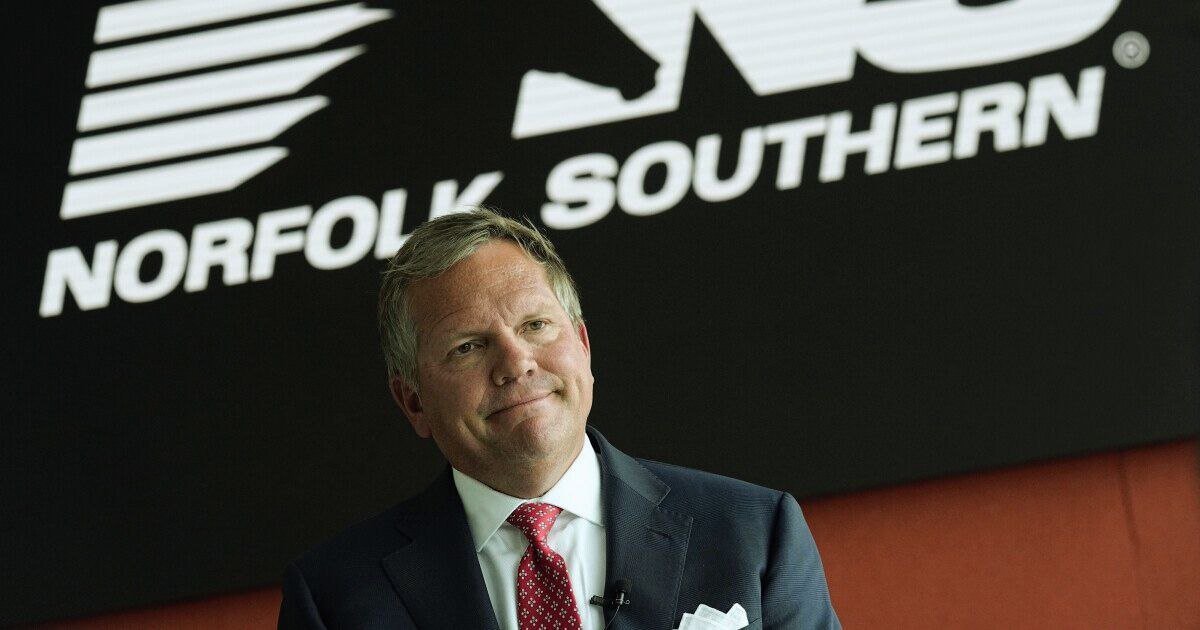Contents

Background of the Incident, Norfolk Southern CEO termination
The dismissal of the Norfolk Southern CEO underscores the complexity of personal relationships within corporate environments. The relationship between the CEO and the chief legal officer reportedly began several months prior to his termination, ultimately becoming a focal point of scrutiny regarding the company’s internal governance. While the specifics of their engagement remained private, it is understood that the relationship evolved within a challenging corporate structure where professional boundaries are defined by explicit internal policies.
Norfolk Southern, like many corporations, has established guidelines delineating acceptable behavior among employees in personal relationships, especially those involving higher-ranking officials. These policies are intended to mitigate potential conflicts of interest and foster a workplace grounded in professionalism and ethical conduct. Although the company had previously maintained a culture encouraging transparency and accountability, prior to this incident, similar controversies had tested its commitment to these values.
In the wake of the CEO’s termination, the timeline became crucial for understanding the broader implications for the company. Reports indicate that multiple executives raised concerns about the nature of their relationship, sparking a formal inquiry into the matter. This scrutiny revealed not only the CEO’s personal decisions but also highlighted a potential gap in the application of corporate policies governing such relationships.
The Norfolk Southern incident provides insights into systemic issues that can arise within corporate governance frameworks. It emphasizes the need for clear and enforceable guidelines concerning interpersonal relations, particularly when they involve senior leadership. Given the stakes inherent in such dynamics, companies in the railroad industry and beyond must remain vigilant in their efforts to ensure that ethical standards are upheld, thereby maintaining the integrity of their leadership and organizational culture.

Impacts on Norfolk Southern, corporate governance issues
The recent firing of Norfolk Southern’s CEO due to a consensual relationship has significant implications for the company. The immediate effect of such a leadership change is often a re-evaluation of the existing leadership structure within the organization. In this case, the board of directors will need to identify an interim or permanent replacement, which could lead to a shift in strategic priorities. The selection of new leadership may provoke adjustments in company strategy, potentially influencing initiatives in safety, operational efficiencies, and financial performance.
Moreover, the departure of a high-profile executive can have profound effects on employee morale. Staff may experience uncertainty regarding their job security and the direction of the company, causing anxiety and skepticism among teams. This uncertainty may lead to disruptions in productivity, as employees might adjust to new leadership styles and operational protocols. Communication from the interim leadership is crucial during this transition to reassure employees about the organization’s commitment to maintaining stability and continuity in its operations.
From an operational perspective, stakeholders may reevaluate their relationships with Norfolk Southern. Given the railroad’s past incidents that have marred its reputation, the departure of the CEO might raise questions regarding corporate governance and accountability. Stakeholders, including investors, customers, and partners, may anticipate changes in operational practices and are likely to keep a close watch on the company’s responses to this leadership vacuum. This scrutiny may affect Norfolk Southern’s financial performance if the company is unable to swiftly restore confidence among its stakeholders.
In conclusion, the firing of the CEO carries substantial weight for Norfolk Southern, influencing its leadership dynamics, employee morale, and broader stakeholder relationships, especially in light of the company’s ongoing efforts to repair its reputation.
Legal and Ethical Considerations, corporate governance issues, workplace relationships policies
The recent dismissal of the Norfolk Southern CEO over a consensual relationship raises significant legal and ethical questions within the railroad industry and corporate governance as a whole. Corporate governance frameworks typically address relationships in the workplace, highlighting the need for transparency and accountability. These frameworks often include codes of conduct and policies that specifically outline the protocols for managing personal relationships, particularly those involving executives or individuals in positions of power.
From a legal perspective, consensual relationships can lead to potential complications, especially when one party holds a supervisory role over the other. Issues such as claims of favoritism, sexual harassment allegations, or breaches of fiduciary duty can arise, subsequently posing risks for the organization. In this case, Norfolk Southern may face scrutiny regarding its internal policies and whether those policies were adhered to by management. The legal ramifications could extend to lawsuits or regulatory actions if it is determined that the company failed to safeguard its employees’ rights or uphold ethical standards.
On the ethical front, the incident spotlights the importance of maintaining trust and integrity in corporate leadership. The railroad industry, like other sectors, is built on ethical standards that reinforce the commitment to responsible conduct. This event may prompt other organizations within the industry to reevaluate their policies regarding workplace relationships. Best practices could involve mandatory training sessions for employees about the complexities of workplace relationships, reinforcing the need for clear communication, and establishing guidelines on disclosure and accountability. By implementing these practices, companies can mitigate risks related to personal relationships and uphold their reputations within the industry.
Future of Leadership in the Railroad Industry, ethical leadership in corporations
The recent dismissal of Norfolk Southern’s CEO due to a consensual relationship raises significant questions about the future of leadership in the railroad industry. This incident not only highlights the importance of ethical conduct within executive ranks but also serves as a touchpoint for examining how corporate governance may evolve in response. As the industry grapples with this development, it is foreseeable that companies will re-evaluate their policies regarding personal relationships and conflicts of interest at the highest levels of management.
One of the potential trends that may emerge is a greater emphasis on leadership accountability and transparency. Stakeholders—including investors, employees, and regulatory bodies—are likely to scrutinize leadership behavior more closely, prompting organizations to adopt stricter guidelines that govern executive conduct. This scrutiny may result in increased demands for disclosures related to personal relationships and potential conflicts, making it imperative for leaders to act in alignment with corporate values and public expectations.
Moreover, companies could take proactive steps to implement training programs focused on ethical decision-making and conflict resolution. By fostering a culture of integrity, corporations within the railroad sector may enhance their reputations and build trust among stakeholders. Such initiatives will be crucial as organizations strive to navigate the complexities of personal and professional boundaries within leadership roles.
Public perception plays a pivotal role in shaping leadership practices. As societal norms evolve, there may be a shift toward prioritizing leaders who demonstrate not only technical competence but also strong ethical judgment. Companies that fail to adapt to these changes risk facing backlash from consumers and investors alike. Therefore, the railroad industry’s landscape is poised for transformation, guided by the lessons learned from this incident and the evolving expectations of its workforce and clientele.
OUR SITE: toinewsalert.com
